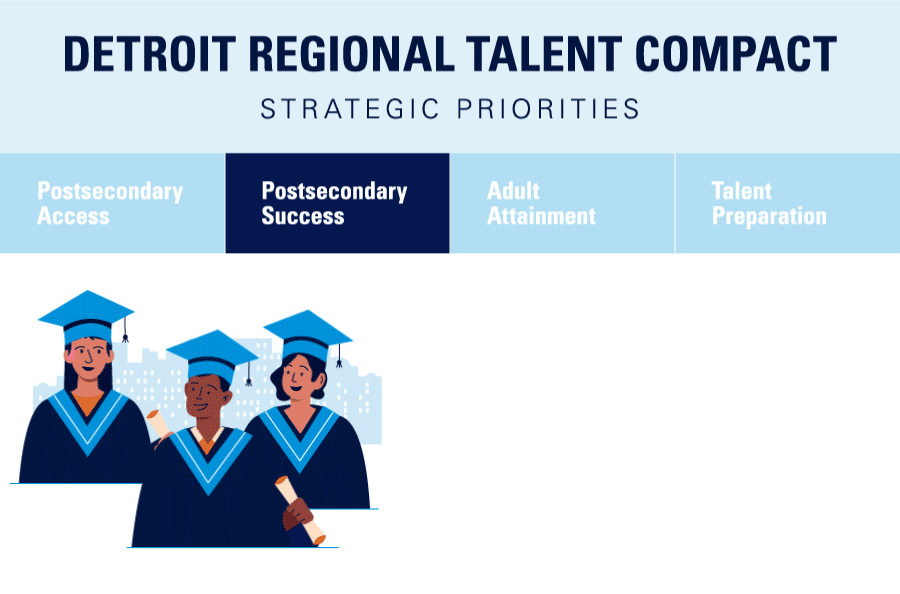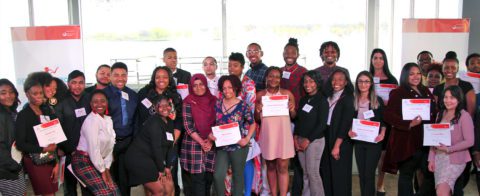- Decrease traditional remedial course placement by 80%
- Increase student progression by 75%
Postsecondary Success Goal
To increase the percentage of students who are persisting in postsecondary programs and graduating within six years of enrollment

Indicators And Targets For 2030:
Why Focus On Success?
Only 44% of the region’s 2017 high school graduates earned 24 college credits within 16 months of enrollment. Only 38% of 2012 high school graduates – and only 18% of Black graduates – earned a degree within six years. Students who start college, but do not finish are at risk of amassing debt without the credentials to mitigate the financial impact.
Equity Focus
Restructuring remediation models supports an equity agenda. Black and Latinx community college students are more likely to end up in remedial courses than their white peers. Few students who end up in remedial education ever enroll in, let alone complete, gateway courses in mathematics and English, and only a fraction go on to graduate. Further research reveals that many students placed in remedial coursework – nearly 50% – could pass a college-level course if given the chance.
Partners Committed To Boosting Postsecondary Success
Over the next decade, Detroit Drives Degrees will continue to lead and convene partners to implement the postsecondary success strategies outlined in the Compact’s strategic plan. We appreciate the leadership of the organizations below who have pledged to support this work.
3.1: Expand use of multiple measures to place students directly in credit-bearing mathematics and English courses
Baker College
Henry Ford College
Monroe County Community College
Oakland University
Schoolcraft College
University of Michigan – Dearborn
Western Governors University
3.2: Scale up implementation of co-requisite models of remediation in both mathematics and English
Henry Ford College
Monroe County Community College
Oakland Community College
Schoolcraft College
4.1: Incentivize full- and part-time students to maximize the credits they complete each year
Detroit Charter Schools Collective
Eastern Michigan University
Henry Ford College
Jamie & Denise Jacob Family Foundation
Macomb Community College
Michigan Hispanic Collaborative
Monroe County Community College
Oakland Community College
Oakland University
Wayne County Community College District
Western Governors University
4.2: Building institutional capacity to provide intrusive advising that uses predictive analytics and technology
Ballmer Group
Henry Ford College
Macomb Community College
Michigan Hispanic Collaborative
Monroe County Community College
Oakland Community College
Oakland University
University of Michigan – Dearborn
Wayne County Community College District

Learn how the Chamber is supporting education and talent in the region.





